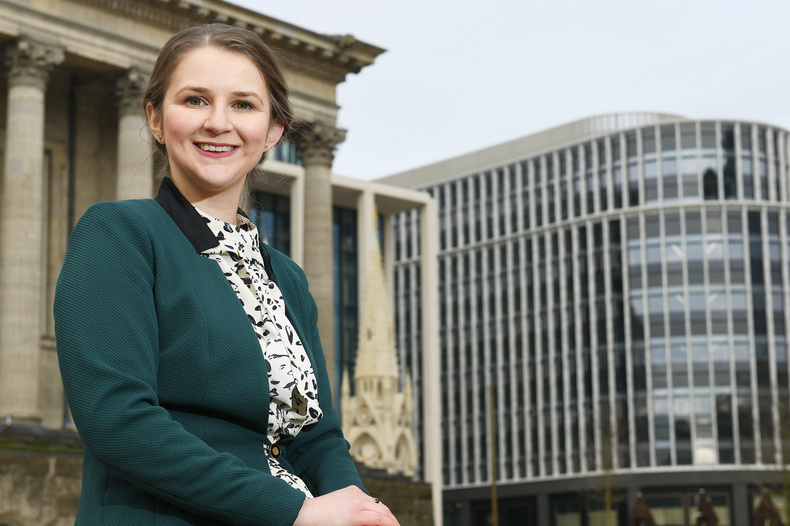Businesses fight back as jobs crisis bites - Chamber

Businesses in Greater Birmingham are showing “underlying resilience ” in their battle against soaring levels of inflation, the conflict in Ukraine and the global energy crisis, a new business report reveals today.
But recruitment difficulties remain one of the biggest concerns, with record numbers of firms in the region struggling to find the right talent to fill vacancies.
The Quarter 2 Business Report from Greater Birmingham Chambers of Commerce (GBCC) shows that recruitment difficulties are at the joint highest on record - 76 per cent of those who attempted to recruit experienced difficulties.
The crisis was highest in the manufacturing sector, where 82 per cent of firms were struggling to recruit compared with 74 per cent in the service sector.
Recruitment problems are among several factors reflected in this quarter results caused by the impact of soaring levels of inflation, exacerbated by the conflict in Ukraine and the global energy crisis.
But the GBCC pledged to work closely with businesses to ensure they are primed to maximise all job opportunities, like those presented by HS2 and the Birmingham 2022 Commonwealth Games.
Henrietta Brealey (pictured), the GBCC 's chief executive, said: “Persistent issues around accessing talent remain apparent as a record proportion of businesses faced recruitment difficulties.
“Within this context, the importance of projects and events such as High Speed 2 and the Birmingham 2022 Commonwealth Games becomes even more apparent given the opportunities they present to upskill local talent across the region.
“As a Chamber, we will be working closely with businesses to ensure they are primed to maximise the opportunities that these once-in-a-generation projects will bring. ”
While the price index balance score reached a record high as a growing number of businesses face pressure to raise their prices and a record percentage of businesses expressed concerns in relation to the impact of inflation on their business, the report reflected an underlying resilience from the Greater Birmingham business community.
Forty-eight per cent of firms reported an increase in UK sales, which is a decrease of 6 per cent compared to Q1, but export sales have improved by two per cent, with 34 per cent of firms reporting an increase. Thirty-one per cent of manufacturers reported an increase in exports, an increase of 11 per cent compared to Q1.
On other positive notes, 30 per cent of businesses reported that their workforce had grown over the past three months, and 42 per cent expect their workforce to grow over the next three months.
Cashflow remained steady with 31 per cent reporting an increase, the same as the previous quarter, but investment plans for training dipped. Thirty-one per cent said they were increasing investment in training, seven per cent lower than the previous quarter.
However, 24 per cent, up two per cent on Q1, increased investment in equipment.
Underlying the resilience of regional firms, 59 per cent were confident that turnover will improve over next three months- down seven per cent compared to last quarter, but overall the balance score shows that growth is still steady.
Forty-nine per cent were confident that profitability will improve next quarter, down from 55 per cent in Q1.
This confidence was support by the fact that 59 per cent of firms are working at full capacity, an increase of four per cent compared to last quarter but 41 per cent of businesses were worried about the impact of Inflation.
Ms Brealey added: “The results from the latest Quarterly Business Report offer a timely reminder of the underlying resilience of the local business community as we look forward to hosting the biggest sporting spectacle this city has ever witnessed: the 2022 Commonwealth Games.
“In particular, sentiment on domestic activity for firms across the region remains strong. This quarter also showed welcome improvements on sentiment on export activity too - a testament to the ability of Greater Birmingham businesses to navigate the continued fallout from the Covid-19 pandemic and the UK 's formal departure from the European Union.
“It was also promising to see high proportions of businesses expecting their profits and turnover to increase over the coming twelve months in spite of the well documented challenges businesses are grappling with on a daily basis. ”
Professor Julian Beer, deputy vice-chancellor of Birmingham City University, who support the report, said: “The Q2 survey was framed against rising inflation and the cost of living crisis which is threatening business recovery, and testing the resilience of the Greater Birmingham economy.
“At the time of writing, prices were rising by 9.1 per cent a year in the UK - the highest rate for 40 years, whilst the Bank of England warned that inflation could hit 11 per cent. The survey results reflect this landscape with decreased levels of business confidence in turnover and profitability, limited labour force growth, and anticipated increases in the price of goods/services evident. ”
A full briefing on the Q2 report will take place at Birmingham City University on July 19 (9-11am)
The event will also focus on digital adoption and technological innovation in Greater Birmingham. Speakers include Kasam Hussain, regional partnership director for Openreach,and Lee Johnson, chief technical officer at Air IT.
